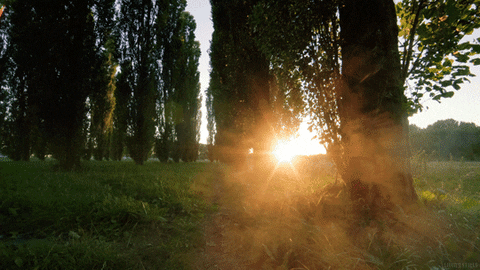
How Women with ADHD Can Manage Relationships: Effective Communication and Conflict Resolution
For women with ADHD, navigating relationships—whether romantic or platonic—can present unique challenges. ADHD symptoms like distraction, impulsivity,...

In today’s fast-paced, constantly connected world, it can feel overwhelming to keep up with everything—work, relationships, self-care, all of it. That’s where nature therapy—sometimes called ecotherapy—comes in. For women, particularly those juggling multiple roles, nature offers more than just a break; it’s a deeply restorative experience. Time spent in the wild has been shown to improve mental health, reduce stress, and foster emotional clarity. Imagine escaping the noise and chaos for a while and letting nature do its magic.
Let’s explore how immersing yourself in the natural world can transform your well-being, from studies on its impact to practical ways you can integrate it into your life.

One of the biggest gifts nature gives is relief from stress. Time outdoors can significantly lower cortisol levels, that infamous stress hormone that ramps up when life feels too heavy. Whether you’re walking in the woods or relaxing by the ocean, just being outside calms your nervous system, allowing you to feel grounded again.
Nature isn’t just about peace; it also actively boosts your mood. Spending time in the wild increases the production of serotonin and endorphins, the chemicals that make you feel good. It’s like nature’s way of giving you a mental pick-me-up, helping reduce symptoms of depression and lifting your spirits.
When life’s challenges pile up, creativity is often the first thing to go. But stepping into nature has a way of clearing the mental fog. For women balancing creative projects, careers, or even just daily problem-solving, nature provides a space where new ideas can emerge.

Ecotherapy involves structured therapeutic practices that take place in natural environments, such as forests or parks. From forest bathing (which is not as literal as it sounds!) to group therapy in nature, these methods are designed to use the natural world as a calming, healing force.
Wilderness retreats are another powerful option. These retreats take women out of their usual environment and immerse them in natural settings for multiple days, offering practices like meditation, yoga, and journaling to promote emotional healing. It’s a chance to reset, unplug, and reflect.
It’s no secret that many women wear multiple hats: career, caregiving, household management, emotional support—you name it. Nature allows you to temporarily step away from those roles and focus entirely on yourself. In the peace and quiet of a forest or beach, you can recalibrate, recharge, and return to life feeling stronger.
For women dealing with hormonal changes—whether it’s due to pregnancy, menopause, or stress—time spent outdoors can help regulate the body’s natural rhythms. Exposure to natural light helps balance melatonin and cortisollevels, improving sleep quality and reducing the effects of hormonal imbalances.
You don’t have to go on a week-long retreat to benefit from nature therapy. Start with daily or weekly walks in your nearest green space. Even a simple stroll in a local park can calm your mind and give you a much-needed break from the demands of everyday life.
This Japanese practice, also called Shinrin-yoku, involves immersing yourself in the atmosphere of the forest. Take slow walks, listen to the rustling of the leaves, and breathe in the fresh air. It’s a meditative practice that can be done in as little as 20 minutes and offers profound stress relief.
If you’re feeling like you need a full reset, look into wilderness retreats designed for women. These retreats offer a mix of activities—yoga, meditation, and even therapy sessions—all while being surrounded by nature’s beauty.
Q: What is nature therapy?
A: Nature therapy, also known as ecotherapy or green therapy, involves spending time in natural environments to improve mental and physical well-being. Activities such as hiking, forest bathing, or wilderness retreats help reduce stress, improve mood, and foster emotional clarity. It taps into the healing power of the natural world to restore balance.
Q: How does nature therapy benefit women’s mental health?
A: Spending time in nature has been shown to reduce cortisol (the stress hormone), improve mood by increasing serotonin levels, and alleviate symptoms of anxiety and depression. For women, who often juggle multiple roles and responsibilities, time in nature offers emotional relief and the opportunity to reconnect with oneself.
Q: What is the science behind nature’s impact on mental health?
A: Studies show that just 20-30 minutes in nature can significantly reduce stress and improve mental clarity. Other research indicates that walking in green spaces can lower symptoms of depression and rumination, providing a natural boost to overall well-being.
Q: What is ecotherapy, and how does it differ from regular outdoor activities?
A: Ecotherapy is a structured form of therapy that takes place in nature and often involves specific activities like forest bathing, horticulture therapy, or group therapy in natural environments. It differs from recreational outdoor activities because it’s designed to address mental health directly, using nature as a therapeutic tool.
Q: How can women incorporate nature therapy into their busy lives?
A: Women can start small by taking daily or weekly walks in nearby parks or green spaces. Even short, 20-minute walks can have profound effects on mental health. For a more immersive experience, consider wilderness retreats or ecotherapy programs designed for women.
The information in this article is intended for educational purposes only and should not replace professional medical advice or treatment. Always consult with a licensed healthcare provider or therapist before making any decisions regarding your mental health or well-being. While nature therapy has been shown to offer significant benefits, individual experiences may vary, and it should complement, not replace, formal mental health treatment when needed.
Incorporating nature therapy into your life can have profound effects on your mental and emotional well-being. Whether it’s a 30-minute walk, a day spent hiking, or a full wilderness retreat, nature offers an accessible and powerful way to reduce stress, boost your mood, and foster emotional clarity. As women, it’s easy to get caught up in the whirlwind of responsibilities—but nature is always there, waiting to offer you a space to breathe, reflect, and reconnect with yourself.
Takeaway: Nature has an incredible ability to restore balance and peace. So, take the time to connect with the outdoors—whether it’s a walk in the park or a wilderness adventure, nature is ready to help you heal.
Start now: Take a small step today—spend a few minutes outside, take a deep breath, and let nature guide you to a place of calm and clarity.

For women with ADHD, navigating relationships—whether romantic or platonic—can present unique challenges. ADHD symptoms like distraction, impulsivity,...

Managing time can be a challenge for anyone, but for women with ADHD, time management often feels like an insurmountable task. ADHD can make it diffic...

Relationships—whether romantic, familial, or friendships—are central to our emotional well-being. But navigating these relationships can sometimes fee...

For many women, trauma is a deeply personal experience that can impact emotional well-being, relationships, and overall quality of life. From childhoo...

Career-related stress is something most women face at some point in their professional lives. The balancing act between personal and professional resp...